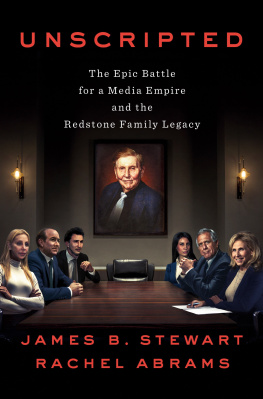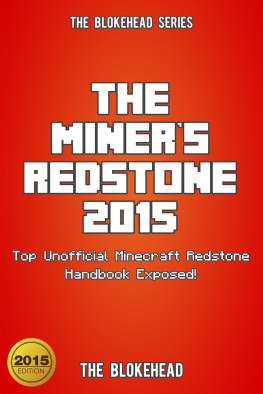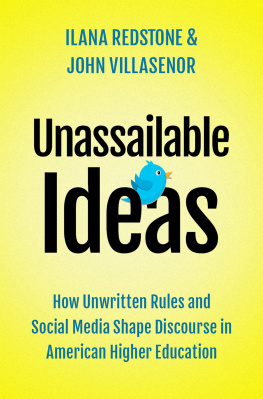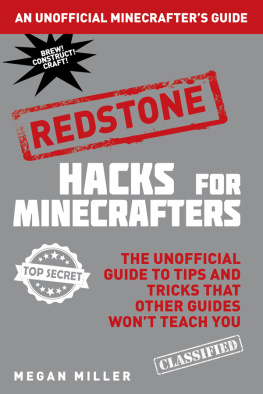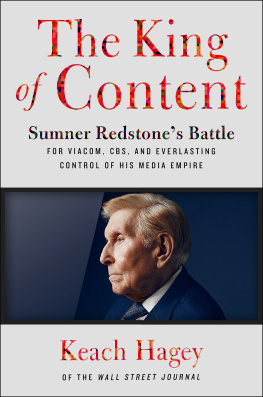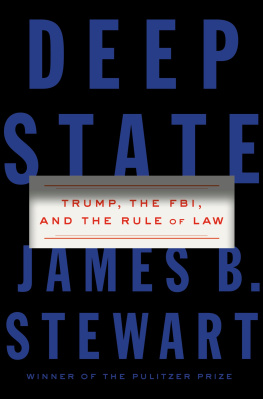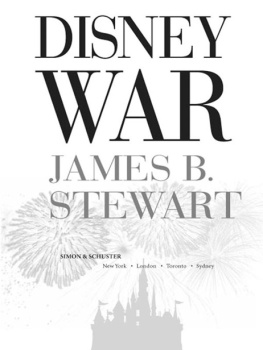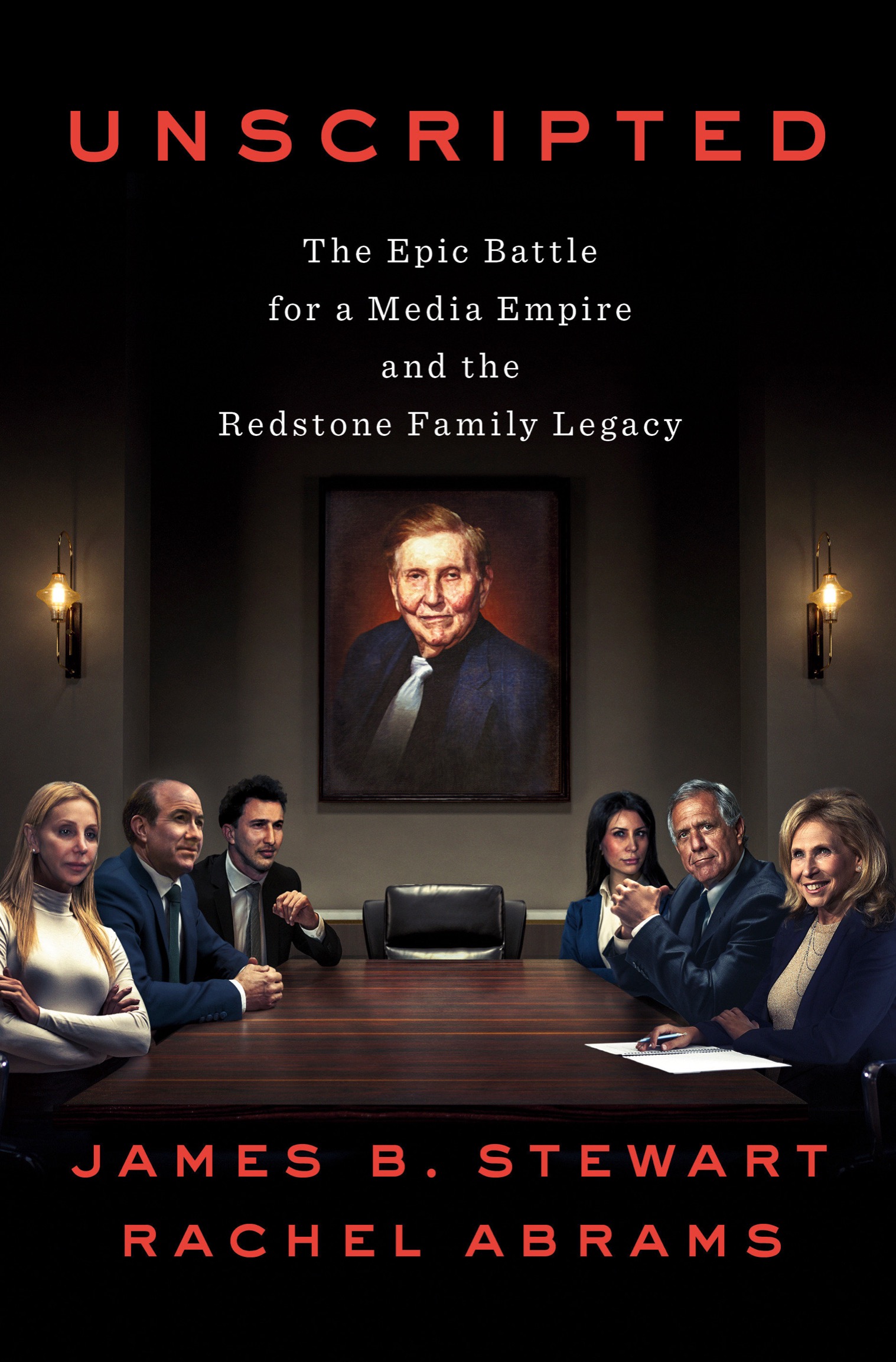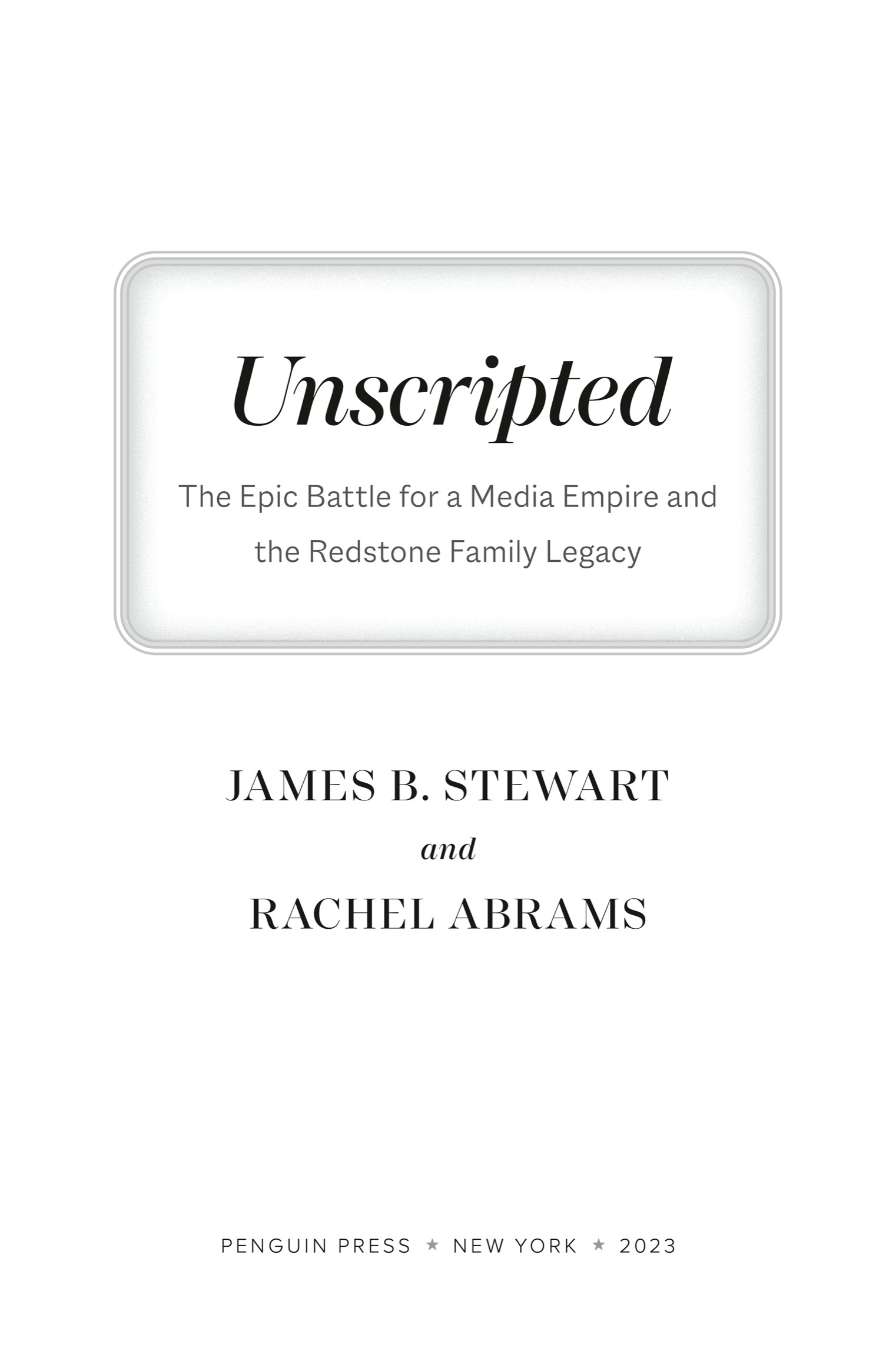ALSO BY JAMES B. STEWART
Deep State: Trump, the FBI, and the Rule of Law
Tangled Webs: How False Statements Are Undermining America: From Martha Stewart to Bernie Madoff
Disney War: The Battle for the Magic Kingdom
Heart of a Soldier: A Story of Love, Heroism, and September 11th
Blind Eye: The Terrifying Story of a Doctor Who Got Away with Murder
Blood Sport: The President and His Adversaries
Den of Thieves
The Prosecutors: Inside the Offices of the Governments Most Powerful Lawyers
The Partners: Inside Americas Most Powerful Law Firms
PENGUIN PRESS
An imprint of Penguin Random House LLC
penguinrandomhouse.com
Copyright 2023 by James B. Stewart and Rachel Abrams
Penguin Random House supports copyright. Copyright fuels creativity, encourages diverse voices, promotes free speech, and creates a vibrant culture. Thank you for buying an authorized edition of this book and for complying with copyright laws by not reproducing, scanning, or distributing any part of it in any form without permission. You are supporting writers and allowing Penguin Random House to continue to publish books for every reader.
Image Credits
: Todd Williamson/Invision for LA Friendly House/AP Images.
Library of Congress Cataloging-in-Publication Data
Names: Stewart, James B., author. | Abrams, Rachel (Journalist), author.
Title: Unscripted : the epic battle for a media empire and the Redstone family legacy / James B. Stewart, Rachel Abrams.
Description: New York : Penguin Press, 2023. | Includes bibliographical references and index.
Identifiers: LCCN 2022030865 | ISBN 9781984879424 (hardcover) | ISBN 9781984879431 (ebook)
Subjects: LCSH: Viacom Inc. | CBS Corp. | CorporationsUnited States | Mass mediaUnited StatesManagement. | Redstone, Sumner | Redstone, Shari | Moonves, Leslie | ExecutivesUnited StatesBiography
Classification: LCC HD2796.P373 S73 2023 | DDC 658.1/145dc23/eng/20221104
LC record available at https://lccn.loc.gov/2022030865
Cover illustration: Justin Metz
Cover images: (center portrait) Sumner Redstone, Frazer Harrison / Getty Images; (from left to right) Manuela Herzer, Reuters / Alamy Stock Photo; Philippe Dauman, Kris Connor / BET / Getty Images; Brandon Korff, Greg Doherty / Getty Images; Sydney Holland, Zuma Press / Alamy Stock Photo; Leslie Moonves, Ian White Photography / Getty Images; Shari Redstone, Jared Siskin / Getty Images
Designed by Amanda Dewey, adapted for ebook by Cora Wigen
pid_prh_6.0_142549203_c0_r0
FROM JAMES:
For Benjamin Weil
FROM RACHEL:
For my parents, Alice and Ian
_142549203_
You are seeing a great company in a civil war and there are bodies all over the road.
Leslie Moonves, former chairman and chief executive of CBS, in confidential testimony on September 9, 2018
Preface
I can say every report about CBS toxic work environment is true, the October 2018 email to The New York Times tip line read. This case enrages me so much, and it breaks my heart to look behind the curtain and see the ugliness and moral bankruptcy of institutions and people I admired since childhood.
The case was that of CBS chairman and chief executive Leslie Moonves. Moonves had resigned just a month earlier, the same day The New Yorker published the second of two articles detailing the accounts of twelve women accusing him of unwanted sexual advances. CBS had launched an internal investigation to determine, among other issues, whether Moonves should receive $120 million in severance pay.
In many ways Moonvess sudden departure had been only the beginning of the story. At the Times, the two of usmedia reporter Rachel Abrams and business columnist James B. Stewartwere separately pursuing different angles. Rachel, whod contributed to Jodi Kantor and Megan Twoheys Pulitzer Prizewinning coverage of movie executive Harvey Weinstein, was focusing on the CBS internal investigation. Was the company really trying to get to the bottom of what had happened, oras with so many self-directed corporate investigationswas it trying to sweep the scandal under the rug and protect other powerful interests? James was exploring the inner workings of the CBS board and how it had handled the accusations against its chief executive.
After the email landed in the Timess tip jar, a screener forwarded it to Jim Windolf, the Timess media editor. He in turn sent it to Rachel. She was heading out that day when she passed James at his desk in the Timess third-floor newsroom. They barely knew each other, but Rachel paused because shed heard he, too, was looking into Moonves and CBS. She described the email, and he was excited: the source sounded like someone who could both confirm and expand upon what he was hearing from other people, which was that the real reasons for Moonvess departure had been far more intriguing than reported and had even involved an attempt at extortion.
Rachel spoke to the source that evening. Her impression was that the sources motive for reaching out and putting a career at risk was altruistic: having closely followed the #MeToo movement, this person didnt want to see men get away with abusing their power by exploiting women and then covering it up. Rachel felt the source was equally interested in the structures that enabled such behaviorin this case a public corporation. She was confident the source had no allegiance to any of the warring factions at CBS.
This source became one of a number of people who turned over hundreds of pages of original materialemails, texts, interview notes, internal reportsdocumenting an astonishing saga of sex, lies, and betrayal at the highest levels of a major corporation.
At CBS, the #MeToo movement had collided explosively with the corporate boardroom. Moonves was the first chief executive of a major publicly traded company forced to resign for predatory sexual conduct. (The much smaller Weinstein Company was privately owned.)
And Moonves wasnt just any chief executive. As a leading media and entertainment company with a vaunted news division, CBS had an outsize influence on American politics and culture. Under Moonvess leadership, the CBS network had gone from last to first place in the ratings and stayed there for over ten years. CBS stock had more than doubled in price. The Hollywood Reporter named Moonves the most powerful person in entertainment. He had earned over $700 million during his tenure, making him one of the highest-paid chief executives in the country.
For all his power and influence, Moonves still reported to a board of directors with the power to hire, fire, or otherwise discipline or reward him. At CBS, members of the board included a former secretary of defense, a former head of the NAACP, the former dean of Harvard Law School, and an Academy Awardwinning film producer. But they could be replaced by a controlling shareholder that exercised 80 percent of the shareholders voting rights.

